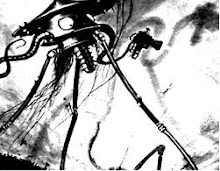Oh Those Poor, Poor Rockstars
Yesterday I read this old article on Ars Technica about the UK government's decision to cap copyright protection at 50 years:
The music industry had lobbied the government hard for a copyright extension, saying that it was necessary to protect the rights of musicians, especially groundbreaking acts whose older songs were about to hit the 50-year limit.Here's where I have a problem:
Criticism from the music industry has come fast and furious in the wake of the government's decision. "Thousands of musicians have no pensions and rely on royalties to support themselves," said Roger Daltry, lead singer of The Who. "These people helped to create one of Britain's most successful industries, poured money into the British economy and enriched people's lives. They are not asking for a handout, just a fair reward for their creative endeavors."With all due respect, fuck you Roger Daltry. There are a lot of professions, many of them non-creative, that provide no pension. Daltry made tons of money as the lead singer of The Who, and it's not the younger generations' fault that he couldn't think ahead and plan for his own future through investments like the rest of us. Yet, this fucking rockstar has the gall to complain about his copyright expiring. As far as I am concerned, Daltry has already received his just reward of exclusive copyright as an incentive to create further works; however, he'd rather keep culture off-limits to the people for his own monetary gain.
How more simply can I put this... "Hey Daltry, you'll have fifty-fucking-years of royalty payments from your creative endeavors, and that's more than most other people in most other professions can say. You are asking for a handout -- you've had your turn, now let someone else run with the culture. It's not our fault you were fucking irresponsible with your earnings."
So, fuck you Daltry.
This is what Daltry doesn't quite understand:
Critics of extended copyright protection point out that musicians already enjoy 50 years of royalties and that copyright laws attempt to balance the rights of artists with a desire to encourage new works and ensure a rich public domain for new artists to build on.Copyright was designed to be an incentive to creative further works, not an economic safety net. At some point we have to allow creative works into the public domain, otherwise it will become increasingly difficult for new artists to create new works. If we want a rich and diverse culture, a healthy public domain is necessary for people to comment and improve upon the creative works that influence them. Moreover, we cannot expect people to sit on the sidelines and only passively interact with their culture, nor should we strive for such conditions.



No comments:
Post a Comment